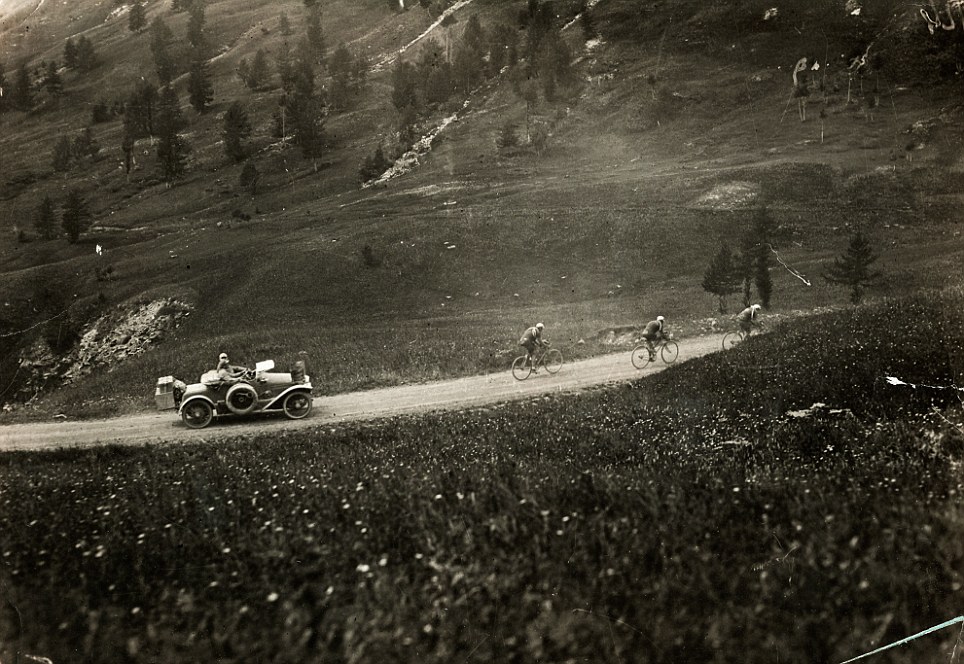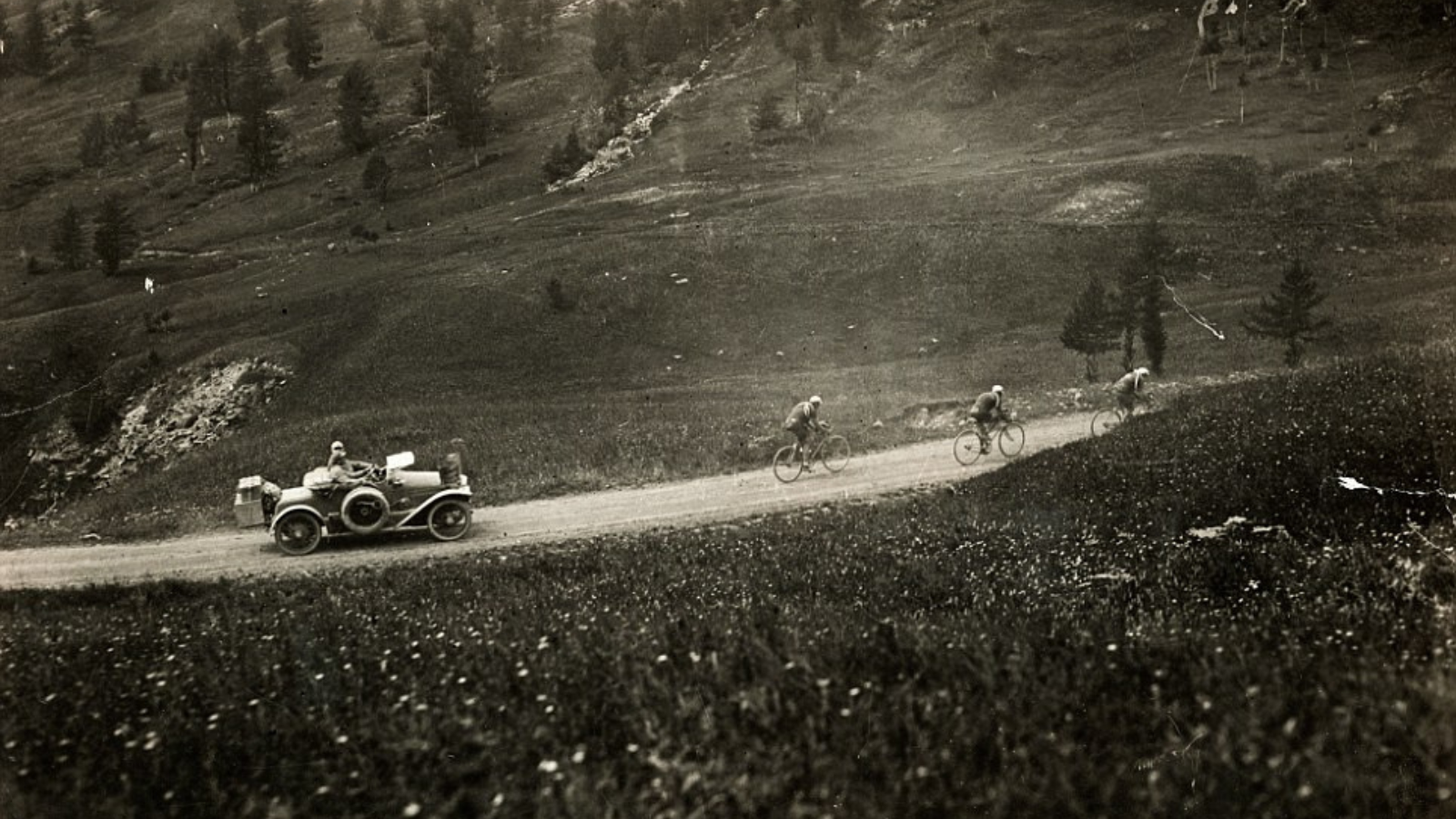Tour de France 1914 started on the same day, 28th June, as the Austro-Hungarian Archduke Franz Ferdinand and his wife, Sophie, Duchess of Hohenberg were assassinated in Sarajevo. When the riders lined up in the middle of the nigh for the start of the first stage in Paris, they knew nothing about that this day would determinate the life of millions worldwide.
They did not know either, that on 28th July, just two days after they finished the Tour de France, the Great War would break out and some of the cyclists would lose their life during the fights, including François Faber, who is among the three riders depicted on this image.
The Alps were important part of Tour de France since 1911, so was the ascent Col d'Allos. In this early period of Tour de France, when the race visited the Alps, it visited also Col d'Allons.
The 10th stage on 16 July was 323 km long, run between Nice and Grenoble. The program also included Col Bayard, which might be better known from history: Napoleon Bonaparte crossed the place on his return from Elba.

Belgian cyclist Philippe Thys, winner of previous year, dominated the race since the beginning, and was leading the general classification since the first Pyrenees stage (stage 6) of this edition. Thys won the race also in 1914. And once again, after the war in 1920, which made him the first 3-time winner in the history of Tour de France.
The 10th stage was won by Henri Pelissier (a future Tour de France winner, and one of the French winners with a tragic privat life). Pelissier had a quite good Tour de France in 1914. He won 3 stages (two of them in the mountains), was involved in the actions most in the mountain stages and finished second in the general classification 1minute and 50 seconds behind Thys.
Also the third cyclist on the picture, François Faber (winner of Tour de France 1909) won two stages and finished 9th in the general classification in 1914. Sadly, this was his last Tour de France every, he was killed in the war less than a year later.
There is a simple reason, why on PelotonTales blog there is a category called Tour de France the early years ( 1903-1914) The Great War and the five year hiatus of racing changed a lot in the world of road cycling races. Even when many riders from the top ten of 1914, like Thys, Pelissier, Firmin Lambot (winner of Tour de France 1919 and 1922) , or Jean Alavoine had some (smaller or bigger) success after 1919, the first big chhapter of Tour de France ended on the day when the peloton arrived back in Paris on 26 July 1914.
